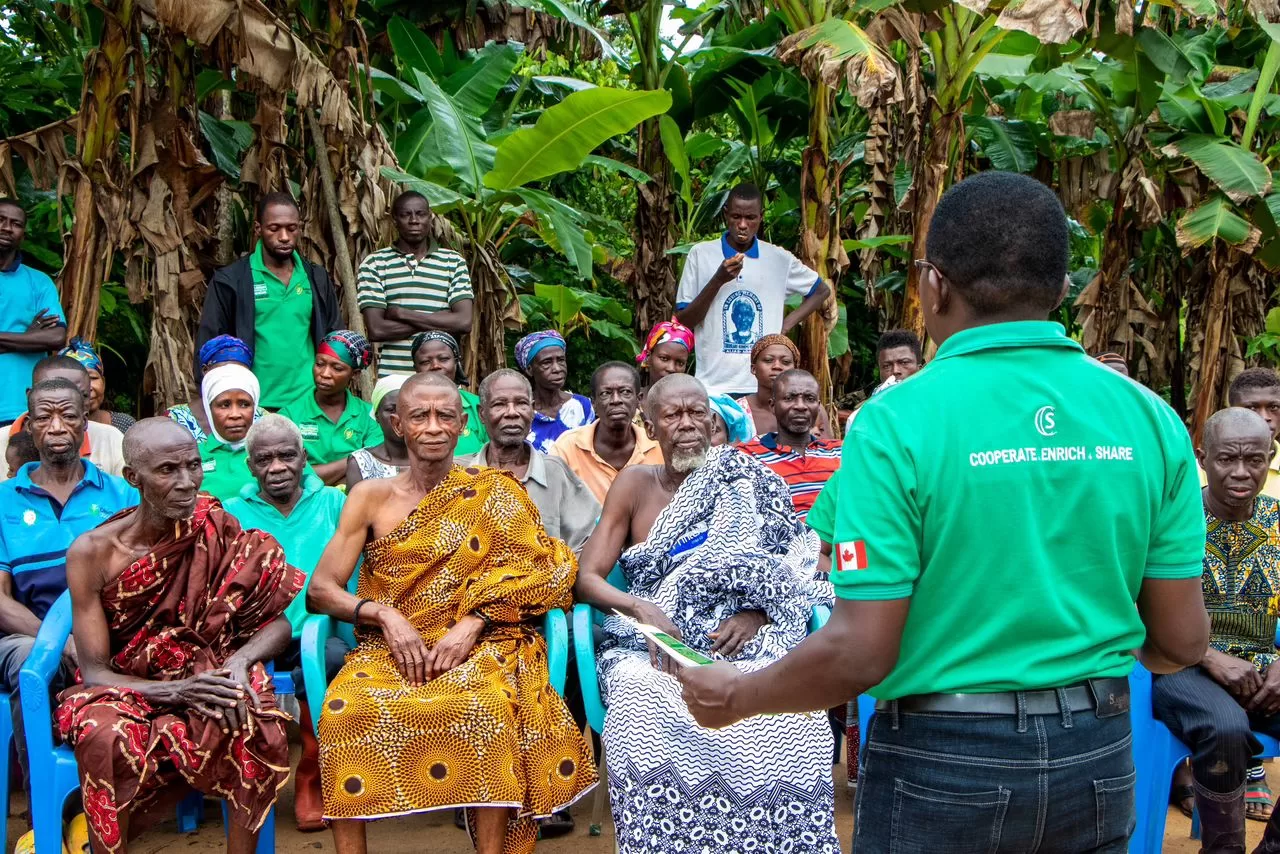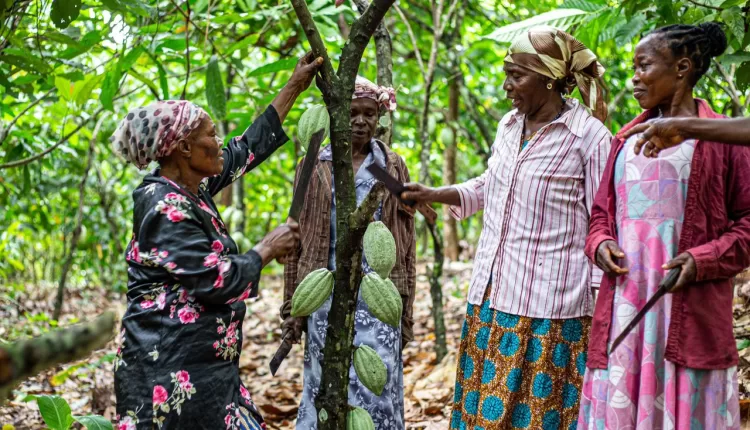Women cocoa farmers are often excluded from decision-making and sometimes compelled, by circumstances, to give up their lands to their male counterparts for large-scale farming operations.
This phenomenon jeopardises Ghana’s efforts to achieve Sustainable Development Goal 5, which aims to eliminate the root causes of discrimination that hinder women’s rights in both the private and public spheres.
As we contemplate measures to combat these discriminatory acts in the cocoa value chain, SOCODEVI Ghana, a Canadian non-governmental organisation, has launched a project called “TogetHER,” a Women and Cocoa Communities Initiative.
The TogtHER project, a five-year initiative spanning 2022 to 2027 and funded by Global Affairs Canada, is designed to close the gender gap in the cocoa sector, address environmental issues such as climate change, and promote agroforestry.
The project aims to empower women and young adults aged 18 to 35 in rural cocoa-producing communities in the Ashanti and Western-North regions through training programmes on collective savings, entrepreneurship, and financial inclusion.
This will contribute to the sustainable resilience of the cocoa sector and the equitable distribution of economic benefits and opportunities.
SOCODEVI Ghana Country Director, Nicolas Demers-Labrousse, emphasised the organisation’s commitment to supporting women’s groups and introduced the TogtHER cocoa community initiative.
“This project, when fully implemented, will reduce gender gaps in the cocoa sector, enabling cocoa cooperatives to become more inclusive, support equal and effective participation of women and youth, and truly sustain their empowerment,” stated Demers-Labrousse.
He said SOCODEVI strives to facilitate women’s full and effective participation as powerful agents of change.
The organisation also seeks to promote women’s access to and control of resources and benefits that lead to their integration into the formal economy.
The cooperative and associative model that SOCODEVI promotes is believed to be an effective tool for empowering women and bridging the gap between women and men.
The organisation also focuses on structured projects for inclusive and sustainable economic development.
This empowerment initiative has been implemented in partnership with the Ghana Cocoa Board (COCOBOD), the Ministry of Food and Agriculture (MOFA), the Department of Cooperatives (DOC), and with support from private partners such as Federated Commodities (FEDCO), Touton Ghana, and CJ Commodities.
Expected Intermediate Outcomes
Building Financial Autonomy is one of the organisation’s initiatives targeted at reducing poverty rates in rural cocoa communities.
The Principal Coordinator of the TogetHER Project, Martha Rainer Opoku Mensah, explained to Cocoa Post that the organisation is focusing on diversifying the cocoa farming business to earn additional income for improved livelihoods.
“We are currently working with them to identify several other activities and looking at both on-farm and off-farm activities that can support these women,” said Opoku Mensah.
Currently, 300 women and 100 young girls have been trained in leadership and financial literacy.
The organisation firmly believes that when women are trained in financial literacy and have control over their own income or family earnings, they reinvest in their families, children, and communities, thereby enhancing the well-being and sustainability of cocoa-growing communities.
She added, “In terms of diversification, we are exploring production, marketing, and value addition.”
“The three main areas—production, marketing, and value addition—under diversification also aim to provide solutions for addressing post-harvest losses by creating a viable market for women farmers.”
SOCODEVI is also said to be establishing 100 Village Savings and Loans Associations (VSLAs) in cocoa communities, with women taking on leadership roles to ensure their participation in decision-making and policy.
The organisation plans to also provide periodic capacity-building training to help women effectively utilise their savings for profitable ventures.

In the area of Climate-Smart Agriculture, SOCODEVI has been actively engaging with women’s groups in the cocoa sector to empower them to positively impact climate adaptation.
This programme is designed to mitigate the adverse effects of climate change on cocoa production and, if necessary, adapt agricultural practices.
The Canadian non-government organisation says it is committed to providing suitable technologies and resources to promote sustainable farming and conservation practices, reduce poverty, and enhance resilience to climate change.
As part of this initiative, SOCODEVI is implementing a tree nursery program to provide additional income opportunities for women by selling various tree species and seeds/plants for food crops.
This is hoped to help increase the resilience of cocoa communities through the provision of environmentally friendly inputs and small equipment.
Furthermore, SOCODEVI is collaborating with government sectors and opinion leaders to address gender issues at various levels.
The organisation is currently working with COCOBOD to develop a gender policy aimed at bridging the gender gap.
- Resource Media to Project Ghana’s Progress on Child Labour - March 11, 2024
- Ghana Startups to Get Direct Cocoa Beans Supply This Year - February 2, 2024
- How SOCODEVI is Helping Bridge Gender Gaps in Cocoa Communities - February 1, 2024
